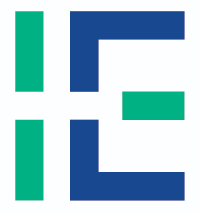Any individual or team who is trying to find or is developing a solution to a healthcare unmet need should apply. Applicants must be able to demonstrate they have detailed knowledge of the relevant clinical environment and its key stakeholders.
Phase 1 applications will close 30th August. Phase 2 will be completed in September. Awardees will be chosen, and agreement signed for Phase 3 to start in October 2024.
Our expertise and capabilities are in medical devices and software-based solutions. We currently don’t have capacity to support drugs, biologics, or process improvements.
A team is not a requirement for applications. Having the right people on the team at the various stages of the healthcare innovation journey is crucial to success. So if you already have them, that’s a bonus.
Support is focussed on the key activities in the Healthcare Innovation Cycle framework (developed by CIMIT) each project needs to progress. Conversations between applicants and IHealthE during Phase 2 will include agreeing on what boxes have been ticked and what boxes are the most important to tick next, and which of these activities IHealthE can support or facilitate. Broadly, support is provided across the following areas: building a world class team, developing a prototype to prove a solutions concept, creating a compelling business plan, developing a regulatory or IP strategy, and obtaining clinical validation.
We will come to an upfront agreement of how the award budget will be utilised (e.g. engineering and materials for developing a prototype, personalised commercialisation workshop and monthly sessions with IHealthE Professors of Practice) and track utilisation of the budget.
All information provided will be treated commercial in confidence. The review panel will be held to strict conflict of interest disclosure. We don’t expect you to provide confidential information during the application process. Confidentiality agreements can be signed by both parties if requested.
IHealthE will not assert IP rights as part of the Innovation Catalyst Awards program, however, joint work with collaborative parties (e.g. UNSW researchers, other clinicians) that could result in co-creation of intellectual property has to be assessed and agreed to by the respective Awardees. Emergent IP will be monitored by the Program Manager of IHealthE with a view to IP protection if and when necessary. We are committed to fair and equitable management of IP. Equitable management of IP will depend on a range of factors including the maturity of the solution being developed, sources of funding, employment relationships and inventive contribution. We aim to provide clear and personalised advice on guidelines and best practices to ensure appropriate pathways for effective protection of IP based on the circumstances.
